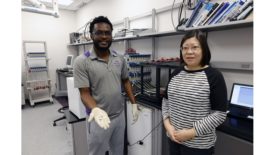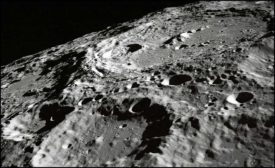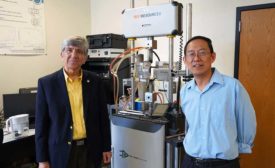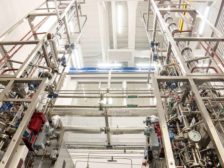Home » Keywords: » LSU
Items Tagged with 'LSU'
ARTICLES
LSU Research Team Exploring the Future of the Extraterrestrial Construction Industry
The LSU research group will work over the next year to determine how construction skills on Earth could and would translate to working on a planetary body other than our own.
November 5, 2022
LSU Mechanical Engineering Faculty Team Up With NASA to Advance Additively Manufactured Materials
Thanks to a NASA EPSCoR (Established Program to Stimulate Competitive Research) and Louisiana Board of Regents grant, LSU mechanical engineering professors Shengmin Guo and Michael Khonsari are working with NASA and LaSPACE to advance additively manufactured alloys to help reduce cost and lead times.
June 25, 2022
Get our new eMagazine delivered to your inbox every month.
Stay in the know on the latest HVACR engineering trends.
SUBSCRIBE TODAY!Copyright ©2024. All Rights Reserved BNP Media.
Design, CMS, Hosting & Web Development :: ePublishing




